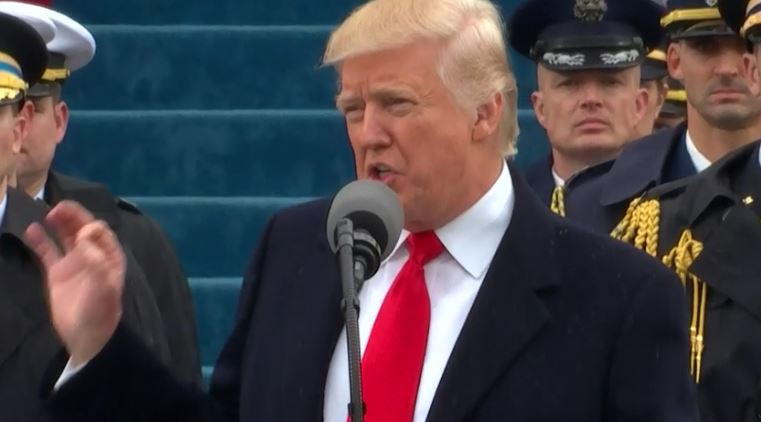Trump hasn’t managed to repeal Obamacare, but he has weakened it

While the US Republican party and President Donald Trump are celebrating its huge tax cuts being passed by both Houses of Congress, health organisations have condemned the undermining of the Affordable Care Act contained in the bill.
The Tax Cuts and Jobs Act cuts the top rate of income tax to 37% and lowers corporation tax from 35% to 21%, with only mixed and temporary relief for those in lower tax brackets.
The most sweeping changes to taxes in decades, the legislation will also strike out the individual mandate, a provision in the Affordable Care Act (aka Obamacare) that incentivises individuals to have health insurance.
Donald Trump yesterday claimed that the repeal of the individual mandate effectively means that Obamacare has also been repealed – something he and the Republican party had tried and failed to agree on earlier in the year.
Trump is mistaken, however. The ACA legislation remains otherwise intact, but removing the individual mandate without replacing its with anything does weaken the system.
The independent Congressional Budget Office (CBO) has forecast that removing the individual mandate will destabilise the insurance markets, and thereby cause premiums to rise by 10% per year on average.
This will in turn lead to millions of the most vulnerable individuals losing their health insurance, with the CBO predicting four million will be affected in the first year, rising to 13 million by 2027.
A coalition of patient and consumer organisations have united to condemn the move, and have urged Congress to address the problems it will cause.
The 17 organisations include the American Cancer Society Cancer Action Network, the American Diabetes Association and American Heart Association.
“Our organisations, representing millions of Americans, including those with chronic and serious health conditions, are gravely disappointed that Congress voted to repeal the individual mandate as part of the Tax Cuts and Jobs Act with no workable alternative to take its place.”
The alliance concluded: “Although there are no perfect solutions to this problem, we call on Congress to swiftly consider both short and long-term ways to lower costs for consumers and to stabilise insurance markets. We stand ready to work with Congress to ensure that health care policies reflect the real and urgent needs of Americans, particularly those with costly, serious, and chronic health conditions.”
By contrast, the new tax laws represent a windfall for pharma, as it lowers corporation tax and also cuts the levy on foreign-earned revenues – a policy which is likely to fuel multi-billion dollar share buybacks and mergers and acquisitions.
The Republican party hopes the measures will stimulate the economy, however Congress’ Joint Committee on Taxation says it will only add to the GDP by 0.8% over a ten year period.
The Tax Cuts are so large and so meaningful, and yet the Fake News is working overtime to follow the lead of their friends, the defeated Dems, and only demean. This is truly a case where the results will speak for themselves, starting very soon. Jobs, Jobs, Jobs!
— Donald J. Trump (@realDonaldTrump) December 20, 2017
This tax bill represents everything that’s wrong with Trump and his Republican enablers (and the oligarchs behind them) – unbridled greed, utter disdain for the rest of America, and a cynical assumption they can get away with anything by repeatedly lying through their teeth.
— Robert Reich (@RBReich) December 21, 2017
These facts, and the bill’s focus on providing America’s richest individuals and its big corporations with tax relief has made it unpopular with the electorate. A Reuters/Ipsos poll found 52% opposed it, with only 27% in favour.
The President is yet to sign the bill, however. He may wait until January to pass it into law, thereby delaying its implementation until well after the mid-term elections of November 2018, and avoiding any difficult questions for Republican congressmen and women seeking re-election.











